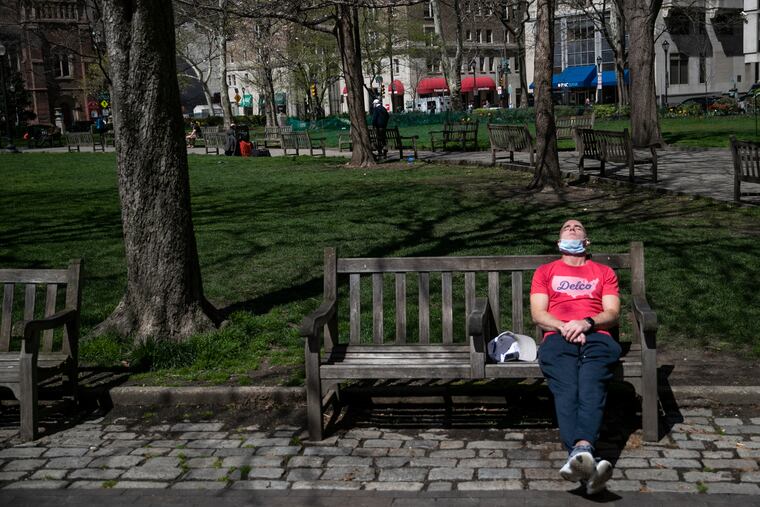Crowded public places will prolong the pandemic | Editorial
As crowds flock to Philadelphia parks, and the Shore and countryside beckon, can Pennsylvania and New Jersey protect public health while providing access to spaces and places?

From Rittenhouse Square to the Belmont Plateau to the Jersey Shore, locally beloved destinations promise escape for people confined by stay-at-home and other coronavirus-inspired restrictions. But the COVID-19 pandemic’s realities are inescapable: Infections may have reached an initial peak in Philly, but there’s still not yet enough testing, no effective treatment, and no vaccine. Nor are there immediate plans to lift, let alone eliminate, social distancing and mask-wearing guidelines anywhere in the region.
With weather warming and summer coming, the debate about access to the region’s natural assets is likely to grow more heated. Just as businesses are putting pressure on government officials to reopen states, people are likely to pressure those officials, especially in New Jersey, to reopen natural assets like parks and beaches. While access to open spaces can have positive mental health benefits, Pennsylvania and New Jersey must recognize the potential risks of undoing weeks of social distancing — and also recognize how imperfect human nature can be.
Case in point: the crowds enjoying Rittenhouse Square last weekend. People without masks presumably wouldn’t dream of spitting in each other’s coffee — but there they were, basically spitting in each other’s faces while sharing blankets and benches under the square’s stately trees. Bad enough they were endangering each other’s health; they also could be endangering access to the square itself.
In New Jersey, after numerous police reports of large crowds gathering in parks across the state, Gov. Phil Murphy closed all state and county parks on April 7. On Monday, in announcing a six-step “Road Back” plan to restart the Garden State’s economy, he declined to say when parks would reopen. That decision will depend on whether New Jersey residents continue to wear masks when outdoors or in stores, he said.
Murphy also said he wants to see the Shore “humming all summer” — visitors spent nearly $43 billion there in 2017 ― but did not predict a wholesale return of businesses and beaches anytime soon. And while the governor wants New Jersey “to be in harmony” with nearby states, efforts may vary. While that’s understandable, city park advocates say New Jersey residents already are crossing the bridges to access Philadelphia parks, especially Penn’s Landing. Earlier this month, Wissahickon Valley Park was reporting record crowds, including from outside the city.
However, the city should pursue innovative ways to avoid having to close popular places like Rittenhouse and Belmont or be forced to invest in expensive new infrastructure and enforcement efforts.
Expanding the city’s popular “Philly Free Streets” program could help. Temporarily limiting vehicular traffic on certain blocks and neighborhoods would draw upon the city’s long tradition of closing blocks for special purposes, and release the strain on the rest of the city’s park system.
Summer is coming, and the pressure to open the Shore, relax guidelines, and lift restrictions won’t be going away. Officials should be prepared to communicate clearly and frequently about criteria for keeping natural assets open and be prepared to shut them down if people don’t use them safely. A warm sunny day can be irresistible to those cooped up at home — but it shouldn’t be a health hazard.